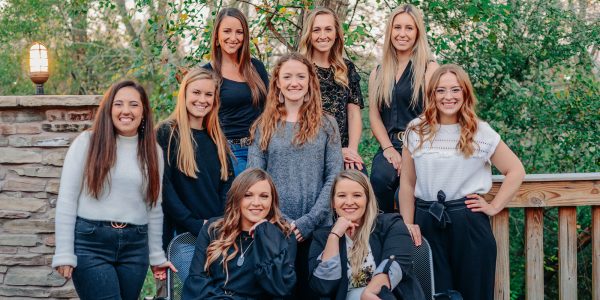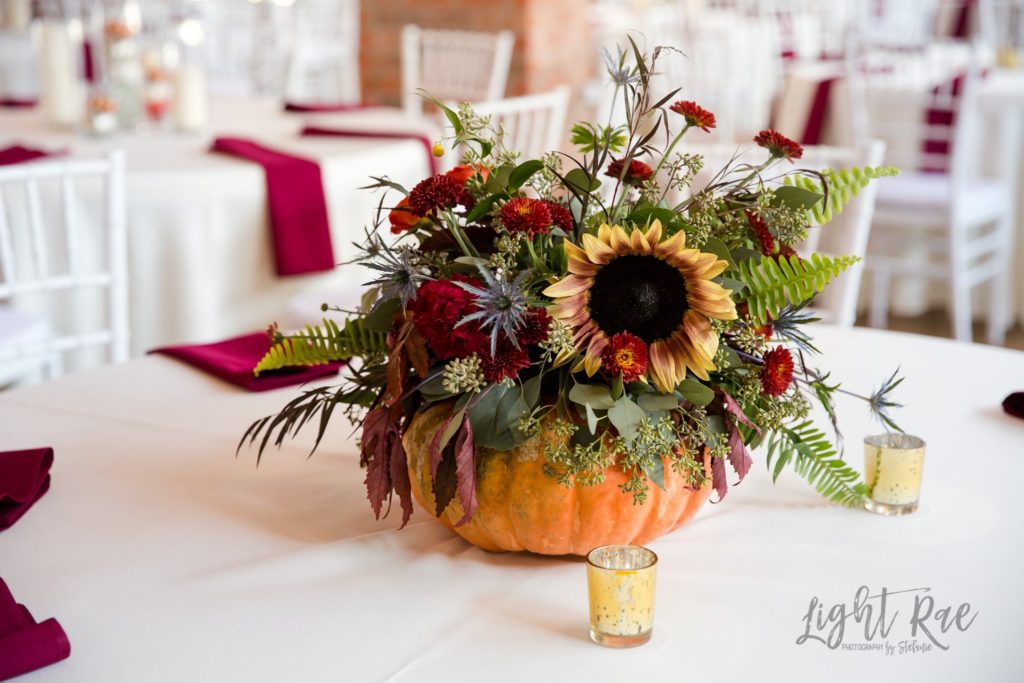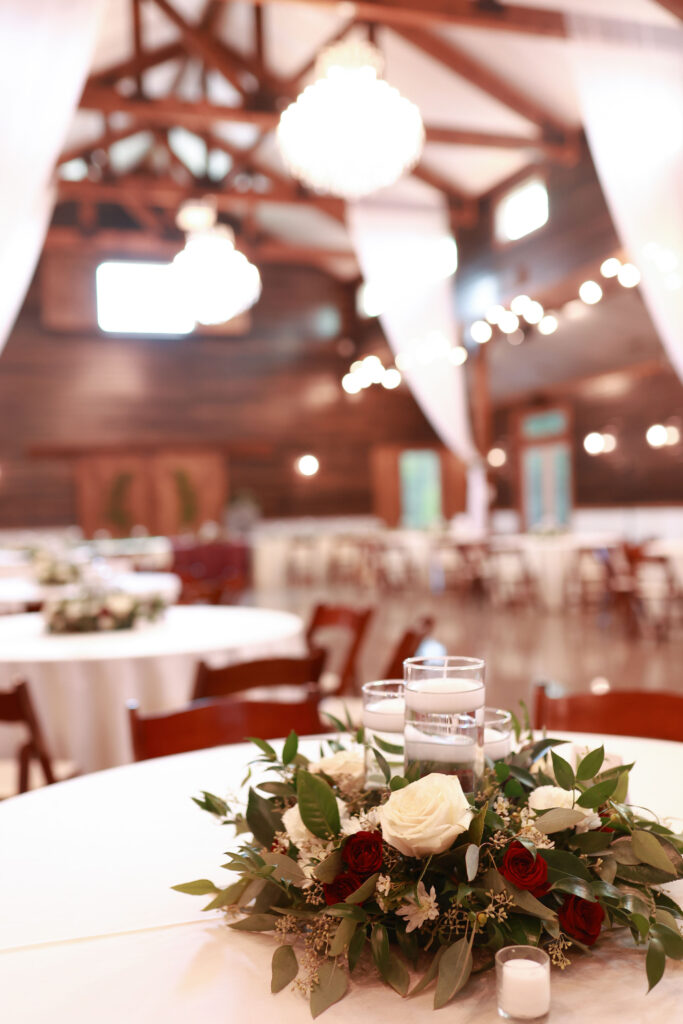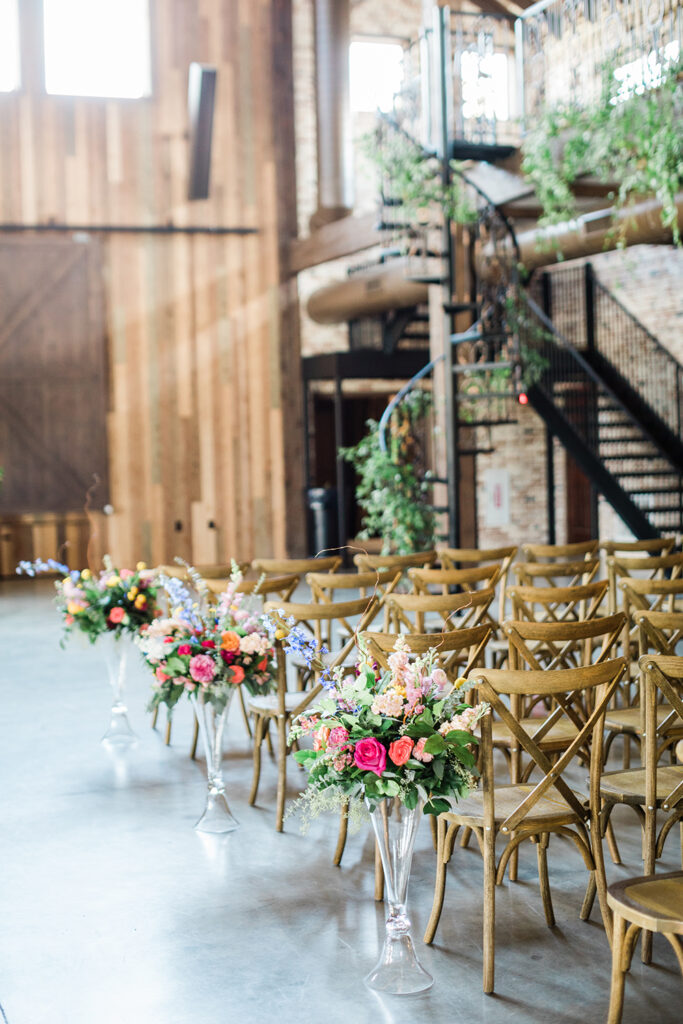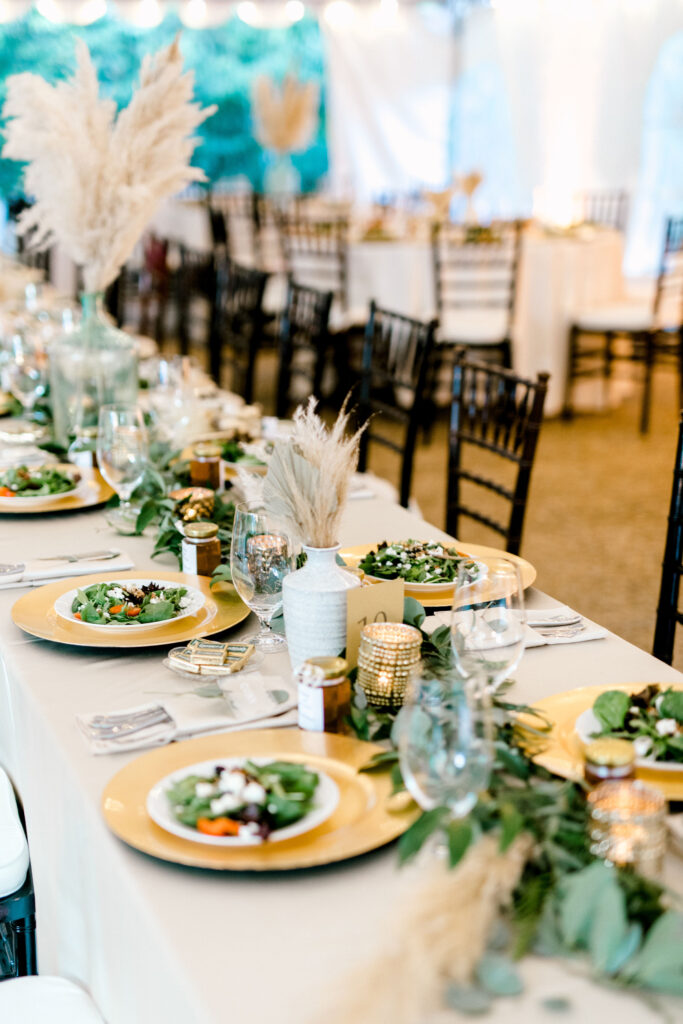Photo credit: Light Rae Photography by Stefanie
Needless to say, we failed at a 10-week series because we got so busy with fall weddings. Now, we are coming to the end of a VERY busy 3 months and are going to close out the series with everything you need to do three months out from the wedding date, up until the Day Of!
Three Months Out from your Wedding Date
Rehearsal and Rehearsal Dinner
Who goes? Traditionally, only those who actually participate in the rehearsal, and their dates are invited to the rehearsal and rehearsal dinner. It is becoming more common to include out-of-town guests to give them something to do the day before, however, we are of the notion that it should be an intimate gathering of your closest friends and families that will be joining the following day. It is also customary to include a separate rehearsal dinner invitation in the invitation envelope of the people attending in order to provide them with detailed information about what is happening and when. You will walk through the ceremony processional and recessional, discuss any timing and cues, and make sure everyone knows their responsibilities. Usually, your wedding coordinator will lead the rehearsal, but the officiant sometimes takes charge for these events. Tailor the evening to suit your needs.
Pick a rehearsal dinner venue that suits your wedding style. These can be formal affairs, or simple and casual backyard parties. The rehearsal dinner should not mimic the wedding or overshadow the event, it is simply a venue of special meaning to the family or the bride and groom. Any venue that showcases local cuisine is preferred by out-of-town guests, while a nicer dinner might be preferential to those coming from nearby. The rehearsal dinner does not have to be a dinner at all, it could be a brunch the morning before.
The groom’s parents usually host the rehearsal dinner, since the bride’s usually pays for the wedding. In more recent times, this has become more lax and either the couple or family may pitch in. Whoever is hosting should simply check with the bride and groom to make sure they are not conflicting with the style of the wedding, or copying the menu.
Toasts are often spontaneous at rehearsal dinners, and include many people that will not speak at the wedding reception. Rehearsal dinners are a good time to talk about memories with the couple, and anything with special meaning that you wouldn’t want strangers to hear.
Wrapping Up
Three months out from your wedding date you should also provide information to your guests on hotel accommodations/room blocks, and arrange transportation for your bridal party and guests if you plan on doing so. This is much more common with out-of-town guest lists. Most transit companies will not split your transportation hours, so you will only want to arrange buses for 4 hours around the beginning of the ceremony towards the end of the reception. Room blocks typically start at 10 rooms, and then any added can continue to get your block rate.
Invitations and Bridals
Order your invitations if you did not do so with your save the dates. They should be mailed two months out, at the latest, with a hard RSVP deadline. Don’t forget to add a “Name” line to your RSVP cards. It seems like a rookie mistake but it happens to often that people say yes, and you have no idea who the RSVP came from with no return address!
Get your bridals taken by your photographer. You should have your dress returned from alterations by now, so it is fitted just for you! Order a bridal bouquet from your florist, or get a stand in from a local floral shop to take your photos.
Two Months Out
It’s getting closer! At this time, you should be working on honeymoon confirmations and activity planning.
You should meet with your officiant and continue/finish marriage counseling if that is something you chose to do.
You and your future spouse should be discussing the bar menu/options and determining how much you will need based on expected RSVPs. You will finalize all of these headcounts after your RSVP deadline.
You should also begin your seating chart and floorplan design for your reception. We get asked all the time if you should do a seating chart. We think they are useful for guests who do not really know one another or if you are doing a plated meal. Seating charts are an easy way to identify who ordered what when pre-ordering with your caterer. So are place cards! It gives shy guests somewhere to sit without an awkward exchange. However, if your group knows each other well and there are only a few “strangers” it is not necessary and most people will mingle themselves. We do suggest always adding one additional table if you do not do a seating chart, for those people who do not want to “fill” a table and to give some spacing to the guests.
One Month Out
Go to the county courthouse where your venue is located and get your marriage license and start researching name change requirements. We could write an entire separate article on name changes, so we won’t go into much detail there. That is post-wedding! Get wedding insurance if your venue requires it. Many sites offer “event insurance” for a single day where you will list your venue as additionally insured.
Start making processional decisions, or deciding the order of your wedding ceremony events and who is walking with who. This is something we go over during your final details meeting, and we regularly get asked what is “normal”. Outside of a church ceremony, grandparents are typically escorted first, then parents, then the bridal/wedding party, flower girl and ring bearer, and bride/dad. There are many variations on when the groom walks down, whether that be with the groomsmen, the officiant, or his mother. We say make it your own! Ushers are not required and you can have groomsmen escort the ladies who do not have spouses, and even some that do!
Begin thinking about your day-of timeline. When do you want to start pictures? Are you going straight into your first dances? These are all things to think about as you decide on your reception events. Your coordinator should make a day-of timeline specific to your wedding day.
Your DJ will need your music choices for the special dances, as well as the ceremony. Some DJs have a do-not-play list and a full questionnaire for the evening, while others will play genres.
Last minute items you might be working on during this time are:
- cups
- plates
- napkins
- cake plates
- cutlery
- drinkware
- last minute decor
- order thank you cards
- favors
- prepare programs and table menus/place cards
- package bridesmaids and groomsmen gifts
- package parents gifts
- make any final payments

